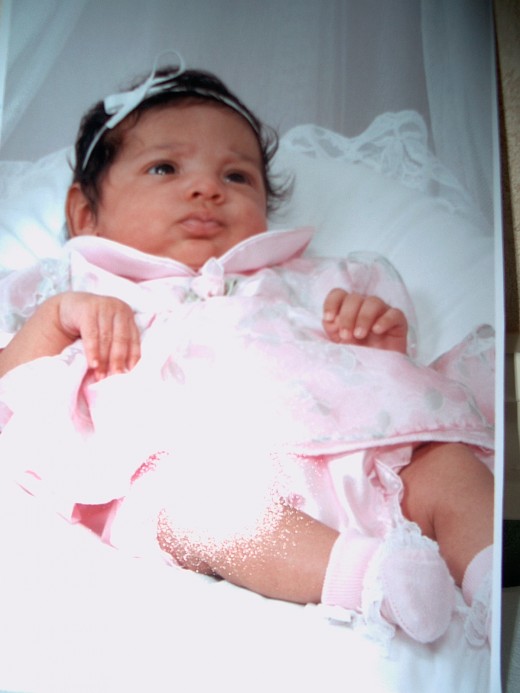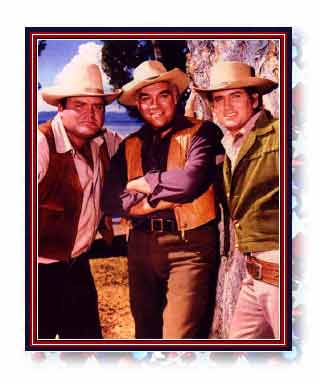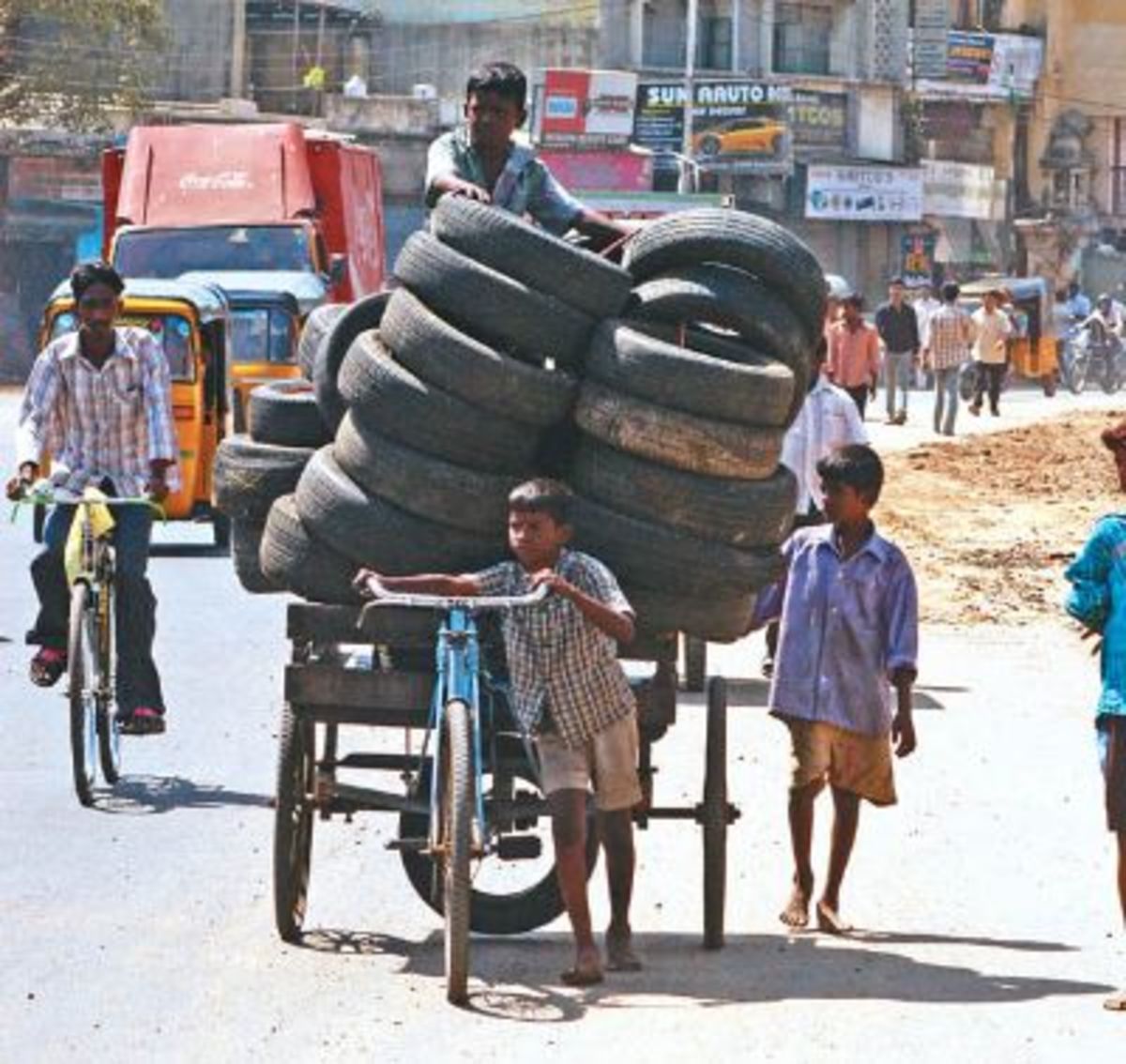Characteristics of a Social Worker
The Social Worker

What are the characteristics of a caseworker /social worker?
A caseworker that works in the Division of Child and Family Welfare has a physically and mentally difficult job. Abuse in the home is a crime left to a Child Welfare caseworker involved in a Social Service Agency to investigate. The police only investigate crimes against children that occur out of the home. Workers are required to use their common sense and keep themselves safe. Caseworkers are expected to have the ability to withhold personal judgments, develop a working plan to bring feuding families to agreements, and essentially fix “broken homes.” Obviously, the responsibility in a situation like that is intense if one correctly assumes the mantel placed upon them.
1. Training and knowledge is just the beginning. The person assigned to investigate and assist families must “Know thy self.” Before one can evaluate what is happening with others, caseworkers must be “centered” and “above reproach” in their own life. “Don’t toss stones if you live in a glass house.” No one is perfect, we are all human, but if we are criminals or have a history of physical or mental issues we should look to another profession
2. A caseworker / social worker needs to be able to put aside their personal prejudices to deal with others in a logical, clinical and helpful manner. If you are honest with yourself, you realize your faults, you see your potentials, and you are aware or your personal beliefs, you will be more likely capable of putting them aside to deal with others fairly and without prejudices. And everyone has prejudice, a formative thought process where a conclusion has been already made and proven to us. Caseworkers are no different than you who started developing prejudice began when you learned how to interact within the world. By learning what is safe and what is not you develop prejudices. If you learn what you believe, it is easier to judge what you need to put aside when dealing with intense situations. It is tough to converse with a family member that just smashed a two year olds head against the wall because they were crying too much as if they were your innocent neighbor. But, if you are a caseworker or social worker, you need to facilitate good relationships with that “alleged” abuser in order to develop “trust” and facilitate healing. Remember the social worker’s first responsibility is to attempt to fix that broken family. No one said the job was easy! “Don’t go out and shake your finger at them to indicate your disapproval.” A social worker must remain neutral and collect facts.
3. Education is not just in books or internally. An undergraduate or mentoring period with lots of opportunity to learn crisis management is essential for social worker development. A caseworker needs to learn how to listen not to formulate a response, but hear what is being stated. From this information, the worker needs to make quick decisions in situations that are not only difficult but also sometimes hazardous. Not listening correctly may cause unnecessary pain and hardship to those involved. It is important to note, while each family feels that they alone have experienced a terrible event, there are really many similarities and patterns that reoccur in most cases of abuse. It is only the distinct and specific facts in each case that separate one woe from the others. These facts assists those brave social workers sometimes called, “Police want-a-be” engaged in Child Welfare casework or social work to investigate each alleged crime, and determine who is telling the truth and what the facts are. Interrogation skills are also helpful. Then turn around and present those conclusions backed up with fact in a "Court of Law."
4. No other job is harder then casework or social work witnessing the result of a family breakdown, an abandoned child, a molested child, a physically assaulted child or injured baby. Sometimes it feels like everyone in the world has gone insane! But statistics reveal that only 3% of the population consists of offenders and abusers. Your job just brings you in contact with them everyday in multiples. This job is not for wimps!
5. The social worker / caseworker needs to learn how to relax. Stress is one major cause of heart attacks a killer disease. Do yoga, dance, take bubble baths, don’t eat too much chocolate, but learn how to diffuse the stress. Dealing with other people’s stuff is tough if you have a heart, and if you don’t you shouldn’t be a caseworker! The saying goes, “God does not give anyone more than they can handle”, but caseworkers handle secrets about families that cannot be discussed with anyone except on a “Need-to-know” basis. This is tough stuff!
6. Settle for making less and giving more. Caseworker and social worker's pay scale is on the bottom just above fast food employees. You will not be driving that Porsche and living in a large home unless you inherited the cash or married someone who has a better paying position. Clients may try to bribe you to change your view, but as a caseworker or social worker, you must be above that manipulation and you cannot take bribes. You most likely will be scoffed and spit at, might be physically assaulted and most definitely will be verbally threatened. But still, all in all, you will not find a better job if you wish to help out our society and protect the innocent in every culture you come across.
To become a successful caseworker/ social worker, you need to have emotional maturity as well as experience. Families caseworker / social worker requires the ability to deal constructively with reality, the capacity to adapt to change, a relative freedom from symptoms that are produced by tension and anxieties, the capacity to find more satisfaction in giving than receiving, the capacity to relate to other people in a consistent manner with mutual satisfaction and helpfulness, the capacity to sublimate or direct one’s instinctive hostile energy into creative and constructive outlets, and caseworkers or social workers must have the capacity to love those who do not love themselves.

100 Years From Now
There is a poem that is hanging on most caseworkers cubicles or counselor’s offices that sums up how caseworkers feel about children and families.
It is a part of the Kessinger Collection and Lynn Kessinger has a collection in Arizona.
This particular poem I am speaking about was written by a child named Ryan. You can get it or others by contacting http://lynnkessinger.com/ . The poem is called 100 Years From Now.
and serves as an inspiration for case workers having a hard time dealing with the day to day horror they see.
The poem essentially states that a person can be rich, can have a big car, a large home, lots of servants and all of the things that money can buy, but in 100 years what that rich person does now will not matter to the world.
Ryan tells it like it really is! The only thing that will matter 100 years from now is how we treat our children, our Earth, and others. Ryan is a child and children is his main objective topic but the idea can be expanded to include humanity as a whole.
100 years from now those children and their children will be the future of the human race. What kind of human race do you want in the world? Try to make it happen today!
First Case Study Meeting
From the time a child comes into care and their family is assigned to a caseworker, the caseworker begins to carefully gather facts to help them. There are many meetings both individually and as a group. The caseworker arranges an initial planning meeting using the "Case Study Approach." At this meeting, a team of experts including the family begins to develop a “Plan of Action" to "fix" the problem that caused the family to be involved with Child Welfare. Specialists invited to this planning meeting may include, a medical or mental doctor, specialists in the field of abuse and neglect like, caseworkers from The Center Against Sexual Abuse, Police Detectives, the children’s schoolteachers, school nurses, a vocational specialist might come to the meeting to help the family with employment, and any extended family or friends who could provide support for the family will be invited. Everyone gathers to resolve the family problems and develop a plan of action. The assigned caseworker leads the group and stresses cooperation. Caseworkers offer parents an opportunity to get everything off their minds now. No abuse or threats will be tolerated in the meeting. The “Best Interest” of the children and family members needs to be considered. The members are asked to consider how the team can make the family “dream come true.” The team evaluates where the family has lived, what type of work the parents have been successful in, their community activities and whom they socialize with. The goal is to support the family, help the family heal, and fill in the blanks. Caseworkers find housing, arrange for jobs, provide for medical assistance, help with schools and arrange for positive socialization opportunities. The extended family is asked for support. If the children require foster parenting for a time, a plan to transition them back to the parents will also be devised. The families’ strengths as well as weakness, their likes and dislikes are addressed. The goal is to gain team consolidation. Knowing what works and what do not is essential. The caseworker and the team need to help keep the family moving forward to success by providing clear expectations. Everything that affects a family will be addressed at the meeting from who picks up the children from school to who pays the bills and a “To Do List” will be created. Once this agreement is made it should be easy for the family to follow. Support staff, agencies, day care, medical assistance, etc. will monitor the family routines and daily patterns of activity. The social worker must learn to think out of the box to help crisis situations ease.

Let's Meet Linda, a social worker
Linda stated that when she was little, social workers from Catholic Social Services arrived in her village in Jamaica. They scooped up her family and her relative’s families and moved them all to New York City. Each family was provided an apartment; food, clothing and adults received employment. Linda stated her family also received free English language classes. All the adults were required to take classes to become “Naturalized” citizens of the USA. Linda stated that she had been lucky as life in the village where she was born was difficult, and she had watched people including family members being killed. Linda said that she had gone from “H” and back. Linda stated that this was her inspiration to get into social work. When she was old enough, Linda began working in a nursing home handing out flowers, balloons, candy, and magazines. She also practiced her English language skills by reading cards and letters to older people unable to read. Because of her many years of service, the nursing home provided Linda with free education to become a Certified Nursing Assistant. She continued to work in the nursing home while taking classes at the University. When Linda graduated with her B.A. Degree in Social Work, everyone was proud of her! She was the first in her family to receive a degree. Although Linda was welcome to continue to work in the nursing home, she stated that she felt a need to continue to grow. She did her homework and eventually secured a position out West. She located an apartment nearby the nursing home and began working as a C.N.A. at the nursing home in the evening. During the day, she worked as a Social Worker for those with Developmental Disabilities. Linda was a hard worker and continued to hold two positions. She used her extra money to send to her family in New York City and visited from time to time. Linda had a worldly view of family, country, and world and gave her good prospective when dealing with the crisis that social workers see on a day-to-day basis. Linda stated working at the nursing home helped keep her eyes on where she came from and occasionally offered her peace from a hard day of work. Linda is well thought of by everyone. Linda’s advise for anyone wanting to be a social worker or caseworker is that “you have to be patience with others.”

Do you think it was right for all the children to be separated from the older ones?
A Caseworker needs to work outside the box!
Amy, had been the “In-take” Worker six years ago during Stella’s family crisis, was requested as a special favor to assist Stella as an “On-going worker.” Stella immediately recognized Amy upon her visit. Although six years had passed, Stella continued to relive that terrible day when she was raped and removed from her home over and over again in her mind. Amy sat down with Stella and listened to her as she told the story the way she remembered it. It was interesting for Amy to hear Stella’s version of the events that led to her permanent foster care. Amy was saddened to hear what Stella believed had happened. Unfortunately, Stella was a child and did not see the whole picture. Stella had blamed herself for everything terrible that had happened to her. Her uncle had raped her and he was sent to jail. Her aunt had stated that she had seduced her uncle and that is why he had raped her during his trial. Stella heard and eventually believed that everything that happened was her fault. Stella told Amy that calling the police to report her rape was the worst thing she could have ever done. Amy asked her why she felt that way. Stella told Amy that because she chose to call the police, she was no longer a part of her family, and had not seen her siblings or her mother for six years. Amy explained that often they separate children who have to go through a trial like she did from the other siblings. Stella stated that she was filled with worry and concern about her siblings’ who she had cared for. She didn’t have any contact with them and didn’t know if they were still alive or what happen to them. Stella stated that it was her who destroyed everything. Amy reassured Stella by telling the events of that day six years ago through her eyes. Caseworkers never forget their worst cases because things that are done are so horrific. Amy told the teenager, Stella, that she was the hero who saved her female siblings from a similar fate. Stella had been acting the part of the mother in the family and put herself in charge because her mother was hardly ever around. Amy assured her that children are not responsible for their siblings and she had gone above and beyond her role as a child in helping to care for them. Stella calmed a bit. Amy told Stella that she would investigate what happened to Stella’s five siblings because it was evident that Stella needed to know. Stella was assured that whatever Amy discovered, Stella would be told good or bad.
Amy did a lot of research in Child Welfare archives in order to discover what happened to each of Stella’s five siblings. Amy was determined to discover what happened to that family for not only Stella but for herself. Amy studied what had happened to Stella during her six-year stay in the Child Welfare System. Amy wanted to know what had caused Stella to want to kill herself and why she kept walking into traffic. Amy was curious why Stella was taking so many antidepressants and still so very depressed. Amy needed to talk to the psychologist to see why Stella didn’t have any counseling. After all, Stella had been physically assaulted and sexually violated by a trusted family member. Most individuals need years of counseling after that.
During her research, Amy discovered that all but one of Stella’s siblings had been adopted by nice families. One male child, the second oldest child, Seth still remained in Foster Care. With permission of his current case manager, Amy was granted access to Seth's active case file. Seth’s case file read much like Stella's. He had issues with “Post-Traumatic Stress” and was given massive antidepressants but remained depressed and self abusive, Amy contacted Seth’s assigned On-Going Case Manager again to arrange for a family visit between the siblings, Amy also arranged for the visit to be supervised by a licensed counselor.
That family visit did both children a lot of good. They hadn't seen each other for 6 years. The visit happened in a park, they played catch, and hugged each other a lot. Seth recognized Amy also as the one who took Stella and the rest of them away from the aunt's home after her rape. With the psychologists permission, Amy answered all the questions they both asked. That night six years ago that haunted them, changed their lives forever. Seth stated that he blamed himself for Stella's rape. He felt that he should have been there to protect her. He thought if he had been there, they would still be a family. Amy put him straight about that night too and told him it was not his job to defend Stella and he might have gotten hurt if he had tried to help her.Amy assured him that he was not at fault. The only villain was the uncle. The uncle was the one at fault and that is why he is still in jail. Amy told Stella and Seth about their younger siblings, told them that they were alive, safe and happy. Stella and Seth were assured that nice families had adopted their other four siblings individually. Stella and Seth were upset that they could not visit with or see them again. They wondered if when they were adopted if their names were changed. Amy did not lie to the children and told them that sometimes name changes happen but the State has a special place where children can go to find their siblings after they all become age eighteen, unless the sibling does not wish to be located. After receiving that information, Stella and Seth let out a sign of relief. Amy told the children that their siblings were safe and happy and now it was their turn. It was time for them to heal. Amy assured Stella and Seth they deserved to find happiness as well.
Amy arranged for on-going weekly visitations between the children. Amy also went to Stella’s Psychiatrist and provided him with six years of documented proof that Stella had become more severely depressed over the last six years due to the medicine increases that he was prescribing. The Psychiatrist took the documentation compared it with his file information and agreed to begin to wean Stella off the medicine. Next, the Psychiatrist ordered counseling for Stella to begin immediately. After much discussion, Seth’s Case Manager did the same investigation on his behalf and he also was taken off the anti-depressants that were not working and provided with counseling. Over time, Stella and Seth’s individual and joint counseling sessions began to work. It took about one year before they started to thrive. Stella and Seth told Amy, they had discussed it and they wanted to be adopted together. Amy had been an adoption worker and told them that the odds of finding someone who would adopt them together at their age was going to be hard but she would try. Amy refused to lie to the children or give them false hope. She knew that adoptions of children age 14 and age 13 is difficult and together unheard of. She did not squash their enthusiasm. Amy requested and Seth was transitioned into her caseload as an adoptive potential. The siblings were advertised on sites for children seeking adoption, TV “Wednesday’s Child” and “Child Find” on the Internet. Both children were weaned off medicine and were at this point, “psychologically stabilized.”
A single woman, Marge, called, stating that she wanted to be the foster / adopt home for Stella and Seth. She was a Police woman and made a good living. Marge had the support of a large extended family, had many good friends, and once approved, visitation began. At first, Marge saw the children alone to see if each child could bond with her. Eventually, Marge saw them together. Marge's home eventually became a Licensed Foster Home for the children. In time they began to do fun family outings together and moved in with Marge. Stella and Seth were eventually adopted by Marge together. Marge was taking on a big challenge most dual parent families would not venture. Amy remained in touch with the family to be sure the adoption was a success for one year. Stella continued to keep in touch with Amy for many years. Thanks to Amy’s case management efforts to fix the “broken wheel” in the system that let Stella and Seth slip through, and Marge’s bold move to adopt two troubled teens, their life was filled with quality.

Lets Meet Pauline
Social Workers are not all cut from the same cloth. Pauline grew up in the foster care system. As a child she experienced the horror most of us only view on television. Her father killed her mother, sister, and brother. Fortunate for Pauline, at only 2 years old, she hid away successfully so that her father did not find her. She was rescued by the police and placed in foster care. Pauline stated that she remembered her mother and her life at home. She had been well cared for by her mother and father prior to that terrible day. Being placed in a shelter was frightening to her. Pauline was lucky because the female officer who found her hiding place, fell in love with her. This officer became licensed as a foster parent just so she could take Pauline home. She also got licensed as an adoptive parent and kept her. Pauline stated that her goal was that foster care and adoption to be great for every child in care. She states that the trick is finding the right match. As Pauline grew into an adult it was her sole motivation to become a social worker and help other children find “safe havens,” the term she called foster homes. Pauline worked with troubled teens on the crisis hotline while she was in high school. She counseled foster children as a volunteer for her church while in college, and she helped to pay for her college education working with the local police department on the telephone hotline for suicide watch. Pauline was a success in her career choice when she was hired as an adoption specialist after receiving her Masters Degree in Social Work. Pauline stated that she made it a rule to find the very best match for each child placed in her caseload. Children would not be put into Pauline’s caseload until the parental severance procedure had taken place so most children had been in the system for some time before she got them Pauline vowed to practice the best follow-up skills to assure the children have a safe and happy ending like she did. Usually children live in the adoptive home an average of two years before they can be adopted. It was Pauline’s job to make sure the match worked so that valuable time is not wasted. In order to make sure everything is okay, Pauline vowed to visit the children placed in potential adoptive placements frequently. Pauline contacted her parents and children the day after placement to make sure everything is okay, and to thank the potential parents again for their participation in the child’s life. Foster parents need to be told how much they are appreciated and a little human courtesy goes a long way with most people. Everyone likes to work with those who are pleasant to work with and appreciates them. These visits are just to maintain an open channel to the child, the parents and the adoption worker. Pauline wants to make sure she was a pleasure to work with so she could be successful in maintaining a successful adoptive placement for the child and the parents. She speaks separately to each party during the visits. Pauline visited the family again a week after the initial placement. She made another call in a week to see if all is going well and to ask how reaction to the new child was going among those now exposed to him or her. Sometimes the reaction of other family members will make or break a successful placement. This question often will generate large amounts of conversation either positive or negative. Pauline next contacts the family a month after the placement. During the initial licensing period the parents to be went through parenting skills training classes. Pauline’s contact is done to see if they need any support. Each visit occur somewhat the same way as a weekly follow-up but here Pauline is more focused on learning if anyone what those who have seen the child might have expressed. Also if there is anyone else this couple or parent might have met who might be interested in becoming adoptive or foster parents. Having a wish to do something of their own might be an open invitation for a great home for another stranded children waiting for that one special loving home. Six months after the placement is the least amount of time each additional visit will occur. During each visit, the caseworker might provide or suggest an idea or two that might update or freshen the ideas parents are struggling with in order to strengthen the bonding of the family. If there is nothing pressing, Pauline may offer parent a suggestion. There are educational tapes with parenting suggestions available as well as psychological counseling if there are issues that need to be resolved. Some children come to foster care damaged and need expert assistance to learn to trust adults again. Pauline makes suggestions gently stating, “these are just some of the ideas that have struck me since we last met." Often, the parents will be impressed that Pauline is even thinking about their interpersonal issues and ways to streamline things or increase positive results. One year after the initial placement is just a courtesy call to see what may be on the plate for the immediate or near future. Visitations will continue until the child is adopted and the family is always welcome to contact after the adoption takes place. Pauline has received numerous family pictures of happy faces over the years and notes of how happy the families she has placed children in are blessing that family’s life. Virginia states that anyone who wants to be a caseworker or social worker needs to want the “Best for the Child”

Let's Meet Susan
Let’s meet Susan. Susan was a woman of small stature but had a large heart. She had been born into a family of circus clowns and in her childhood life, she moved around from town to town with the circus. Most children only dream of running away to the circus, but Susan actually lived that life. Here birth name was a vegetable, “Squash.” Her folks being humorous with her name thought it would give people pause to laugh and thought it was okay to name children after vegetables. Her older brother was, “Pickle.” Both children were lucky that there was a traveling teacher with the circus so that they did not have to attend regular elementary school. Per Susan, when they were high school age, the circus business slowed down so her father had to get a job with the rodeo for a time. She and her brother had to attend a regular high school, Susan stated that it was hard for them and they did not appreciate the side remarks and giggles they received during roll call. Susan said that the school psychologist called her folks into the office and told them that the teachers were feeling sorry for their children and wanted to give them nicknames to use so they would not be ridiculed. They reluctantly agreed and that’s when “Squash” became “Susan” and “Pickles” became “Pete.” Susan stated that after a while the ridicules stopped and life got better. She stated that she would always remember the feeling she had because of her name. She wanted to grow up and help other children who might have similar issues overcome their hardship. So, at age 16, Susan became emancipated and changed her name legally to Susan and set off on her own. She was a gifted student and received scholarships to college. She also worked in the cafeteria to help pay for her books. After she graduated with the Bachelors Degree in Social Work, she took on a part time job in the Mental Health field. Susan became a Mental Health Social Worker. She started doing assessments in the office for eligibility and eventually began doing crisis intervention in the community. Susan pursued her education and after many years of study she successfully received a Masters Degree then a Doctorate degree in Psychology. She came to work for the Department of Child Welfare as a Clinical Psychologist to assist caseworkers with difficult cases and help families and children heal. Susan often stated that if her life had been different she would have never ended up in the “best job” she ever had. Susan states that anyone who wants to be a caseworker or social worker needs to have lots of patience, a good spirit, strong foundation beliefs and the will to help others in the community.

Let's meet a Social Worker
Let’s meet Brian, an Intern Caseworker. Brian grew up in the “Ghetto” or “Projects.” He had a single mother who provided for the family via Government assistance – Welfare and Food Stamps. Brian had 3 siblings. He was the 3rd. Brian’s mother was in poverty because of her choices not because of her lack of intelligence and her parenting skills were excellent. Despite their poverty, all of the children studied hard and received scholarships to the university to study. Brian was engaged to Rosa and was working on learning Spanish Language and culture to impress her family and better understand his fiancée’. Brian chose the field of Social Work because he saw the plight of those less fortunate everyday of his life and wanted to help stop poverty when he got older. Brian graduated from the University with high marks and sought to continue his educational pursuit. He found that the Department of Child Welfare provided scholarships to Interns who signed up for a two-year course and joined. By this time, Brian had become proficient in the Spanish language, so he beat out other applicants with similar high marks in school. Brian had participated in undergraduate work with the crisis hotline and did ride along with the Mental Health Provider of his town. He thought he had witnessed all the gore by the time he graduated, but he still needed to have some mentoring when it came to the day-to-day crisis experienced by caseworkers. One of his first cases was a child whose father threw him into a wall crushing ½ of his head while the mother stood there watching. The father stated that the boy deserved it, because he was “pestering” him for attention. Brian confided that his first instinct was to beat up that father for what he did. Lucky for him his mentor, the “seasoned” caseworker took the lead calmly ascertaining the situation. Using good judgment, calmly making decisions, and doing what needed to be done. Brian stated that he would never forget the little fellow he saw in the hospital. Fortunately for the little boy, medical technology has improved and the little boy was eventually healed and adopted by a very loving foster family. Of course that child will always have to be careful because of his severe injury,and he will always have a head weakness. Brian eventually graduated from this internship, he married Rosa and they moved to a border town where he obtained a job as a Caseworker. He will continue to help his community doing the tough job of a caseworker in the Department of Child and Family Services. Brian believes it takes a person with lots of love for humanity and plenty of will power to work in the field of social work.
Meet Virginia

Social Work Education
Let’s meet another caseworker.
Virginia began her career in Social Work providing parent-training classes, supervising child & family visits, preparing documentation about the visits and parent training classes. Her documentation was submitted to the Presiding Judges over the families involved in Child and Family Court. Virginia was persuasive in her documentation. Her words helped each judge understand the family members needs individually and as a family unit. She wanted to make sure the children had a voice in the courtroom also. How did Virginia become a caseworker? Virginia was raised the middle child in a middle class family with two brothers. Virginia grew up in the Western part of the United States and was raised in farmland with horses to care for. As a child, Virginia was provided lots of love, plus a good dose of “Common Sense” referred to as “Horse Sense” where she came from. Virginia studied hard to become an educator and counselor. Virginia met and married Nathaniel in her late 20’s. Once married, Virginia continued to work part-time, as a Substitute teacher while Nathaniel and Virginia started their family. As a substitute, Virginia’s versatile skills kept her busy as she could teach a variety of subjects in Elementary, High School and Community College. Virginia and Nathaniel had a boy first, then a girl. The children were only one year apart in age but appeared to be twins. They were a happy family and the children were well cared for. When the children became older, it was time for Virginia to take on a full time job to help pay the bills. She looked at social work because she had a kind heart and a desire to put back into the community. Because of Virginias’ success as a parent trainer, and her proficiency with Court Reports, she continued to rise in responsibility. Virginia was surprised to learn that Child Abuse in the home is a crime left to a Child Welfare Worker involved in a Social Service Agency to investigate. The police only investigate crimes against children that occur out of the home. . Eventually, Virginia became a well renowned caseworker, social worker, trainer and investigator. She works in the Department of Child and Family Services and continues to put emotional feelings into her reports so that the Presiding Judges can put an accurate picture onto each of the families in her caseload..Virginia believes it takes someone who wants to get to the truth and not take the easy road to be a caseworker or social worker. The easy road is not the path of the career caseworker.
Involved in an Investigation and want help?
What happens if you are involved in an investigation? Recently I have been asked this question as a former caseworker / social worker and this is the best answer I can provide.
- When the Division of Child or Adult Protective Services caseworker arrives at your door it will be shocking to you. Remain calm and answer the questions asked. Despite what you may be feeling you need to provide answers to the caseworker / social worker in a rational fashion. In theory, “the truth will set you free,” unless you are guilty.
- Protective Services receives numerous calls on a daily basis regarding alleged abuse or neglect. Most calls are because people are really concerned about what is happening to a child, disabled person or senior citizen who is not capable of defending themselves. Concern like this is helpful and caseworkers / social workers with the help of these calls resulted in stopping abuse or neglect.
- Abuse is defined as infliction of physical injury, impairment of bodily functions, disfigurement, or emotional damage [diagnosed by a psychologist] with resulting depression, withdrawal, aggression, or severe anxiety.
- Neglect is defined as inability or unwillingness or a parent, guardian or custodian to provide necessary supervision, food, clothing, shelter or medical care that causes substantial harm to the child, disabled individual or senior citizen’s health or welfare.
- Thus, caseworker / social worker investigators look at conditions created by parents, guardians and custodians to determine if protection is needed. If they are not able to adequately investigate the allegations, they may decide that temporary custody of the “alleged victim” may be needed. In order to investigate children, disabled individuals and seniors. A non-threatening and neutral environment is essential. You can help provide that setting in a bedroom with a shut door.
- You can also help by giving your child, ward or senior permission to participate with the caseworker / social worker by providing assurance that telling the truth is okay. “The truth will set you free.” If you are in fact innocent, you probably do not have anything to hide. It is the guilty perpetrator who calls lawyers and prevents access to their children, disabled individuals or seniors. The caseworker investigator will only take temporary custody if there are reasonable grounds to believe the subject of the investigation is suffering from injury or illness or is in immediate danger from their current surroundings and removal is necessary. Social workers or caseworkers can become your allies if you are innocent.
- Caseworkers will usually petition for custody if immediate danger is more probable or if there is a history of previous reports with ensuing need for custodial periods, similar allegations without enough evidence to take to court, unclear custodial rights, and criminal history of alleged perpetrator/perpetrators resulting in past arrest or charges being filed. There are repeat offenders!
- Caseworkers have experience and will understand if the allegation is a part of a child custody battle, and if the allegation is false it may be more difficult to investigate. However, providing a false allegation is punishable by law.

Let's Meet Alex
Alex is an older man who helps Social Workers gathers facts and information, his position is Social Worker I. Alex got involved with casework when he was born. His mother dumped him in the trash at birth. Fortunately, the next person who needed to toss the trash was alert and called the police. Alex developed Narcolepsy due to the lack of oxygen he experienced in the trash container and perhaps also due to the harsh environment. He maintained that handicap for the rest of his life. According to http://www.Healthline.com, people with narcolepsy fall asleep suddenly, anywhere, at any time, maybe even in the middle of a conversation. These sleep attacks can last from a few seconds to more than an hour. Depending on where they occur, they may be mildly inconvenient or even dangerous. Some people continue to function outwardly during the sleep episodes, such as talking or putting things away. But when they wake up, they have no memory of the event. This is true as time with Alex revealed. We all were afraid of his illness at first because he was a large man and would be walking and suddenly fall. Because of his size, it took a couple of folks to lift him into a chair. Eventually we all got use to him. Despite his chronic illness, he was a college graduate. Alex stated that he was born lucky because a large family near the town where he was dropped off in the trash adopted him. The police never discovered who his mother was despite a massive search. Alex grew up on the family farm and was filled with love and understanding. He married his high school sweetheart and they had several children. Eventually Alex was too old to work the farm and he turned to his interest in casework. He enjoyed providing hope to unfortunate souls who came into our office dissolute about their circumstance. He also provided great clerical support to his co-workers until he was no longer able to work. Interestingly, Alex spent his lunch and breaks out on the bus. He made various stops all over town purchasing food and drinks then giving it to homeless people. He had a regular route and the folks got to know him well. Too bad his parents will never know what a treasure they tossed away!

Let's Meet Alfonse
I remember Alfonse, a kind hearted gentlemen who had a checkered past. He had grown up in a tough neighborhood. His folks didn’t bother purchasing beds in his home because they had to sleep on the floor in sleeping bags in the middle of the room. Huddled up away from the windows served as some protection from the nightly gunfights and bullets flying about. “Living in the projects is tough on decent folks,” Alfonse would often state. He would tell tales of nice people he knew from the neighborhood who had been gunned down by stray bullets during their sleep. He recalled that drug dealers stood at the exits to the complex pushing children and adults to either buy or sell their products. It was a tough environment.
Alfonse became sullen and strong because of what he witnessed. He started out wanting to be a policeman but during the process of higher education, he changed his mind to choose social work. Alfonse met and married the love of his life in college and a few years later she gave birth to a son. Unfortunately, his wife fell pray to post-partom depression a terrible disease that strikes a female after giving birth that experts are still researching. She began drinking and eventually taking prescribed drugs that made it impossible for her to properly care for herself or the newborn. Sadly, counseling was refused so Alfonse had to leave his wife and take full custody of his son. Undaunted, Alfonse, a social worker in the Department of Child Protection was determined to make everything work out. His life was hard enough without the role of a “rescuer” he played at work.
Alfonse seemed able to handle things without complaint until he was assigned a case he identified with too closely. He was sent out to investigate an abuse case where a father was physically assaulting his son. The father had full custody of the lad because his wife was a “Cocaine Addict.” This father was harming the child stating that he was “beating the devil out of him.” This is an issue of “religion” as well as “government intervention.” The lad was six years old and had welts all over his body.
Per policy, Alfonse suggested passive intervention, counseling, parenting skills training, help inside the home like housekeeping. The father accepted grudgingly, and then told the providers to “get lost.” Another incident of abuse came in from the school nurse. Alfonse took temporary custody of the lad and pursued severance of the father’s rights too soon.
In order to get custody of a child and to sever the parent’s rights a social worker needs a preponderance of facts to prove that the child is in imminent danger to remain with the guardian. More information and proof needed to be in place before a trial should have been started, but Alfonse wanted to protect this innocent child and he was too close to the case to rationally deal with it.
This father was a minister of sorts [computer licensed] and with this he proceeded to court and won the child back and an apology from the agency for taking him. The next thing he did was to take that child out into the desert and set him on fire and kill him. Of course, he was now placed in jail for murdering his child, but what would have happened if the situation were handled better?
Alfonse couldn’t get past that event and blamed himself for acting too impulsively, taking the child into custody too soon. Eventually he had to take a job in another venue and move out of the area. I’ll bet he still blames himself today, but one cannot predict what would have happened in this type of circumstance. It is possible that the child might be alive today if things were different and he had waited to gather enough evidence. It is also possible that the child would have been killed while Alfonse was gathering the evidence that the court needed to prosecute the father and keep the child in protective custody. This is a sad scenario any way you cut it!
The Responsible Social Worker
As a social worker, I cannot tell out how many people I have interviewed about their medical, emotional and personal issues or how many sad stories I still have running around in my head because of the fact that I actually cared about each and everyone in my caseload.
Holding the responsibility of making decisions for another individual on a daily basis both characterizes and sets apart the role of the social worker from that of any other service provider. And at one time or another, as a social worker, I have been put in charge of another’s life and their medical care labeled as “Surrogate Guardian / Parent” [As a surrogate decision maker, the guardian must exercise the utmost care and diligence, always with the idea of protecting the autonomy, independence, and rights of the Court ward.] labeled “Power of Attorney,” or “Guardian-ad-Litem” [A guardian appointed to represent the interests of a person with respect to a single action in litigation is a guardian ad litem] of individuals in my care. It is important to note that two important principles appear in most guardianship legislation to act as a guideline for judges in the decision-making process: "Substituted Judgment" and "Best Interest.”
I am as honest as the day is long and never took this responsibility lightly. I learned about every person, checked out their medicine and their medical conditions and checked the medical journals for contra indicated medicine to make sure the medical professionals did not slip up. Made charts on medicine and results to verify that things were on track with each person assigned. And worried about my charges when they became sick or had emotional or medical issues. In other words, I knew them and their history as if they were my own children, parents or myself.
You can always tell a social worker who cares, because they are just like the doctor who cares. When you call them they do not have to go get your chart to discuss your case. They know who you are. Of course from a worker’s standpoint, it is far easier to push people away and treat them like pieces of paper instead of living breathing human’s beings just like the doctor who calls the subject of the autopsy “it” instead of “he” or “she”. Depersonalization keeps distance between the feelings of those in charge so if something happens they do not get emotionally hurt. But wouldn’t you rather have a social worker doctor who cared
To Summarize
Why one becomes a social worker differs from person to person. Most have the desire to help others and have no idea what they will experience. The current 'burn out' is 2 years service in the field. Some workers are more hearty and stay longer but the never ending journey of social work tends to tear on a person's heart. So many individuals have been touched with these types of tragedy and need a forum or catharsis. Individuals may want to safely visit this 3%-5% of our society by reading. When individuals hear the stories from those involved in a face-to-face C.P.S. interview process they only hear one side. Case workers investigate all sides and comes to a conclusion. What information is contained here is but a sample or taste; a fictional report of real stories witnessed everyday, plus an opportunity to discuss topics that too many visit or live with on a day-to-day basis.
Catch up on the Governments view
- ACF OPRE: National Incidence Study of Child Abuse and Neglect (NIS-4)
OPRE is a unit within the Administration for Youth and Families (ACF) which focuses on social service research programs
22 Years still together
Many of my previous social worker clients are friends on my Facebook account and today I received a letter from one placement success. Two are still together after I placed one teenager with the other provider and they are still family going on 22 years. Things like that make everything wonderful. "Once in a while even a blind squirrel finds a nut" is something my father always said. Good things that happen because of your intervention is fantastic to see and read about. Saving one child or adult at a time is all that matters in Social Work.










